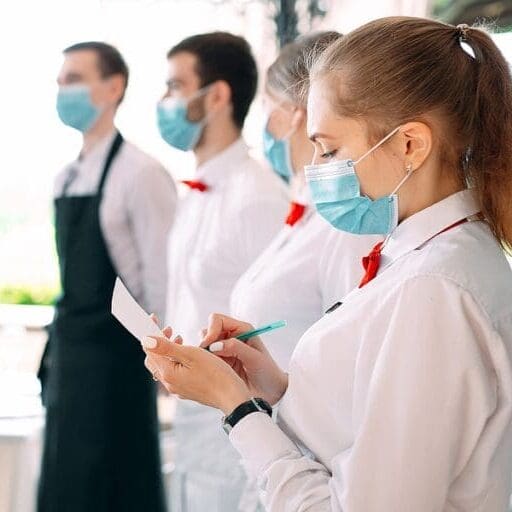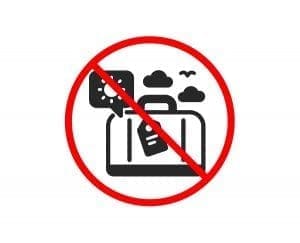 As of early March 2020, the COVID-19 coronavirus outbreak has infected nearly 100,000 people, claimed over 3,000 lives and spread to more than 70 countries outside of China where the virus originated. As these numbers are certain to continue to climb in the coming weeks, the disruptive impact to the global travel and hospitality industry is sure to be lasting and significant.
As of early March 2020, the COVID-19 coronavirus outbreak has infected nearly 100,000 people, claimed over 3,000 lives and spread to more than 70 countries outside of China where the virus originated. As these numbers are certain to continue to climb in the coming weeks, the disruptive impact to the global travel and hospitality industry is sure to be lasting and significant.
(Download the ehotelier Coronavirus staff briefing paper to distribute to your team, or to assist you to brief your staff. Or enrol in eHotelier Academy free course Coronavirus Awareness)
Hotels across the APAC region first impacted by COVID-19 were those that relied on large numbers of inbound Chinese tourists, such as Vietnam which suffered from the widespread travel restrictions imposed by China. Indeed, the Vietnam National Administration of Tourism estimated its tourism sector would decline in the range of between $5.9 billion and $7.7 billion as a result of COVID-19 travel restrictions.
Now, COVID-19 has also spread to major global tourism markets like Italy and regional business centres like Singapore and South Korea. As a result, the hotel industry is at risk of experiencing a business downturn not just from travel restrictions put in place for Chinese tourists, but from lower levels of global and regional travel in general.
Information, analysis and planning is critical for hoteliers facing challenging operating conditions—especially so when facing an issue like COVID-19. So, what can hoteliers learn from previous downturns and what do they need to consider to safeguard their business?
The impact on the APAC hotel market
In March 2003, the Severe Acute Respiratory Syndrome (SARS) virus spread across the Asia-Pacific region, causing widespread disruption. The outbreak of SARS had a significant impact on the tourism industry due to travel restrictions and booking cancellations. Although the spread of SARS was quickly contained in 4 months, it took a further eight months for tourist arrivals to rebound and almost 18 months for full recovery of the market. Every hotel market recovered from SARS at a different rate with some destinations like Thailand experiencing “a freefall over five months from March to July, as market-wide occupancy bottomed out just under the 30% level in May of that year,” before making a full recovery.
How long the outbreak of COVID-19 lasts will directly influence the extent to which regional hotel markets are affected. Govinda Singh, executive director of valuation and advisory services at Colliers International, has said of the Singapore market that, “if the outbreak lasts anywhere between three and six months, room occupancy could fall by at least 10 to 15 percentage points to about 65 per cent.” How quickly the regional hotel sector will recover from COVID-19 will also directly be tied to the effectiveness of containment measures. The faster the virus is contained; the faster global travel markets and the regional hotel industry will recover.
While facing lower levels of occupancy as a result of a downturn in travel is challenging for all hoteliers, owners and managers should not panic when faced with market uncertainty resulting from lower demand due to COVID-19. Guest occupancy rates can slow in all regions when faced with an issue like COVID-19, but we should be positive that business nearly always comes back. Hoteliers should not implement anything they might regret later—such as dramatic price cuts to attract guests from non-targeted profiles or giving too much business to opaque channels. Rather, they must take a long-term view of what is best for their business.
Dealing with demand disruptions and forecasting overall profit
To help understand the extent to which COVID-19 will impact a property, or group, hoteliers must first evaluate their position and develop plans at a corporate and property level. Hoteliers with a majority of their business originating from one travel market (like China) need to diversify their marketing activities to attract new customers. It’s important when addressing the impacts of COVID-19 that hotel chains leverage on a balanced portfolio across the APAC region to mitigate the negative impacts in one country or another.
For individual hotels, the first impact of COVID-19 will be (or may already have been) felt via an increase in customer cancellations both for accommodation and events. For room bookings, offering guests different options like including a credit note or welcome-back packages can help to retain customers in the long-term. For meetings and events, hoteliers should liaise with the event organisers to postpone the event instead of accepting outright cancellations.
Hotel groups should thoroughly review their business mix and source market. By running an evaluation of all products, where they sit in the market, and the sources of their market demographics, hoteliers can then begin to gauge the overall magnitude of impact. For example, a hotel chain in Sydney that caters to domestic travellers and holidaymakers from within Australia will see a smaller impact to their revenue stream in the short term. However, a resort in South East Asia that in large part caters for Chinese outbound tourists will likely be feeling the immediate impacts of COVID-19 more severely. Once aware of where your business is geographically and demographically positioned, you can then proceed to develop a rapid marketing campaign to create new incentives for travellers from alternative markets.
Adjusting demand forecast and pricing strategy
Across the region, most hoteliers will already be experiencing some kind of slow-down in new reservations as a result of regional travel restrictions. One reaction to such a scenario is to drop rates to try and boost occupancy, but this is not advised for a multitude of reasons. The large-scale disruption to global travel markets as a result of COVID-19 will lead to a general lowering of available demand, making it less price sensitive—demand is less likely to increase during these periods by driving down the rates due to less guests travelling to the destination. Cutting rates will not suddenly increase demand if consumers are stuck on a no-travel ban.
It should also be remembered that while price cuts can deliver a brief spike in volume, they can also result in long-term pain for any hotel that pursues this strategy. Hotels that lower their prices in the face of a market slow-down can face significant challenges when demand picks up. These properties experience resistance to any price increases from customers who have a lower reference point value for a hotel’s rooms and services.
Hoteliers must adjust price sensibly. They should monitor the pricing trends of other hotels under different grades in their city and instigate rate changes sensibly in relation to the market they operate within. Hoteliers should pay close attention to their competitive set by scouring reports from data services like rate shopping and STR. An advanced revenue management system and its models such as what-if analysis will help hotels to make the best decision on pricing changes and promotions.
Cost control
When reservations decrease, responsible businesses will look to practice tighter cost control to ensure a healthy cash flow. However, hoteliers should be mindful to plan out any cost reduction actions to ensure short-term activities do not hurt business opportunities and brand value in the long run.
Accurate demand forecasting provided by an automated revenue management system can greatly enhance a hotel’s labour scheduling, helping reduce instances of overstaffing in the face of low demand and help to reduce costs. Once demand forecasting data is made available, staffing managers can determine which areas are most affected by the number of guests staying in the hotel. The number of occupants a hotel carries can directly influence housekeeping needs, the number of staff needed on the front desk to check guests in and out, the number of servers required in restaurants and valets to park cars, or cutting down on food purchasing according to the predicted number of covers or bookings.
Prepare for the rebound
While the spread of COVID-19 is having a direct impact on many hoteliers’ forward-reservations, it is not all bad news. Hoteliers should use this situation as a chance to re-evaluate their business—downturns can be a good time to train your people and review your plans for investing in long-term success. Additionally, when travel bans are released, tourist arrivals will rebound, and hoteliers will have opportunities to attract new guests from new markets and build a wider customer pool for long-term success.
Proactive business takes the lead
Given the impact of COVID-19 on the regional hotel sector, it is critical that property and brand owners develop and review their strategic contingency plan. Hoteliers need to create a balanced portfolio of source markets to reduce risks of profit loss and adjust their pricing strategy sensibly when the situation changes. With a plan in place to secure cash flow, such as pricing strategies and cost control, along with investing in future opportunities through staff training and possible property upgrades, hoteliers will gain competitive advantage when the market has made a full recovery.
About the author
 Tracy Dong is Lead Advisor of Asia Pacific region at IDeaS Revenue Solutions, a SAS Company, based in Singapore office. She worked for InterContinental Hotels Group and Far East Hospitality, both at corporate and property level, prior to joining IDeaS.
Tracy Dong is Lead Advisor of Asia Pacific region at IDeaS Revenue Solutions, a SAS Company, based in Singapore office. She worked for InterContinental Hotels Group and Far East Hospitality, both at corporate and property level, prior to joining IDeaS.
Tracy is focused on furthering Revenue Management education across the APAC region and has in-depth experience in data analytics, forecasting, pricing strategies and revenue management standard operating procedures development. During the time with IDeaS, Tracy has been working on various projects to help hotels build strategic revenue management cultures. She has also applied revenue management principles beyond traditional hotel environments into new territories such as car parks and waterparks.


















